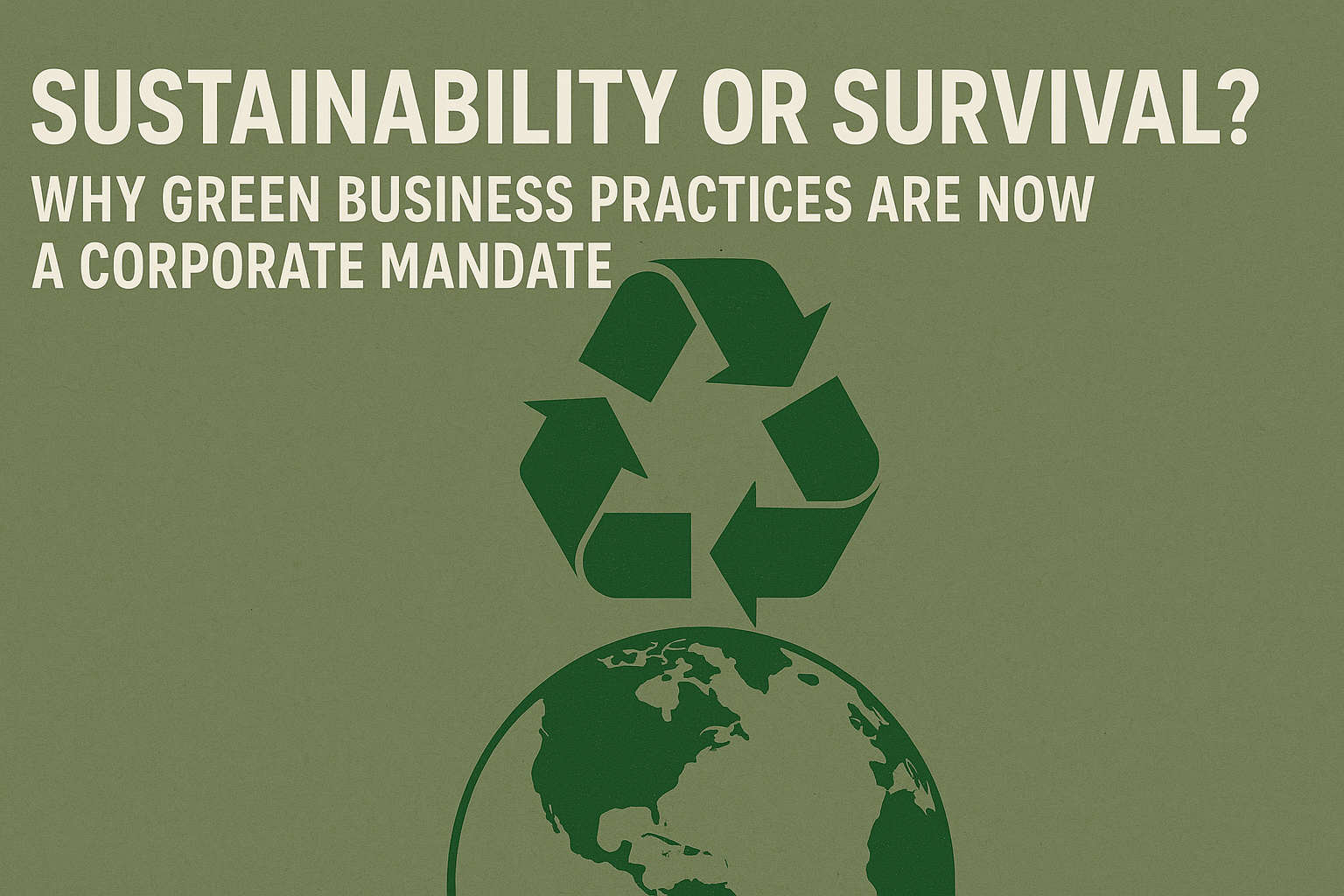
Once considered a noble pursuit or a branding strategy, sustainability is no longer optional in the corporate world of 2025—it’s survival. From regulatory shifts to investor expectations and consumer demands, businesses are being reshaped by one unshakable truth: green practices are now core to profitability and long-term relevance.
1. The ESG Revolution Has Matured
Environmental, Social, and Governance (ESG) metrics are no longer buzzwords used to appease stakeholders. They have become a standard framework for evaluating business performance. Today, global investment firms manage over $50 trillion in assets with ESG compliance as a primary filter. Companies with strong ESG scores enjoy higher valuations, lower risk profiles, and access to better capital.
BlackRock, the world’s largest asset manager, announced in 2025 that over 80% of its portfolio companies must meet carbon-neutral benchmarks by 2030 or risk being dropped.
2. Green Laws Are Getting Teeth
Governments around the world are tightening the screws. The EU’s Corporate Sustainability Reporting Directive (CSRD) now requires companies to disclose climate-related risks and emissions throughout their supply chains. In the U.S., the SEC mandates Scope 3 emissions reporting for public companies, pushing businesses to hold suppliers accountable too.
Fines, sanctions, and even lawsuits are being used against companies failing to comply. This shift has forced firms to embed sustainability deep into their operations, not just into their CSR reports.
3. Consumers Are Voting with Their Wallets
Today’s consumers—especially Millennials and Gen Z—don’t just prefer sustainable brands, they demand them. Studies show that 73% of global consumers are willing to pay more for environmentally friendly products. From biodegradable packaging to carbon-neutral shipping, eco-conscious branding is influencing every purchase decision.
Companies like Patagonia, IKEA, and Unilever have built loyal customer bases by leading with sustainability. And now, fast-moving consumer goods (FMCG) giants and luxury brands are following suit.
4. Green Technology is Fueling Innovation
Sustainability has unlocked a wave of innovation. From carbon capture startups to blockchain-based supply chain tracking, green tech is one of the fastest-growing sectors in 2025. AI is helping reduce energy consumption in factories, while digital twins are optimizing resource use in real estate and construction.
Electric fleets, circular manufacturing models, and zero-waste facilities are not just environmentally smart—they’re driving cost reductions and efficiency gains.
5. Climate Risk is Now a Financial Risk
Insurers and financial institutions now consider climate vulnerability a direct threat to business continuity. Whether it’s flood risks for warehouses or droughts affecting agriculture supply chains, climate change is hitting the bottom line. Businesses that fail to adapt are facing increased premiums, operational disruptions, and reputation loss.
Firms that build climate resilience into their models are not just protecting themselves—they’re gaining competitive advantages.
⸻
Final Thoughts: Green is the New Gold
Sustainability is no longer a checkbox or a PR tactic—it’s a foundational business strategy. In 2025, companies that invest in green innovation, transparency, and environmental responsibility are not only future-proofing their operations—they’re outpacing the competition.
In the race toward a sustainable future, it’s not about being the greenest—it’s about being prepared. And for modern businesses, green isn’t just ethical—it’s essential.